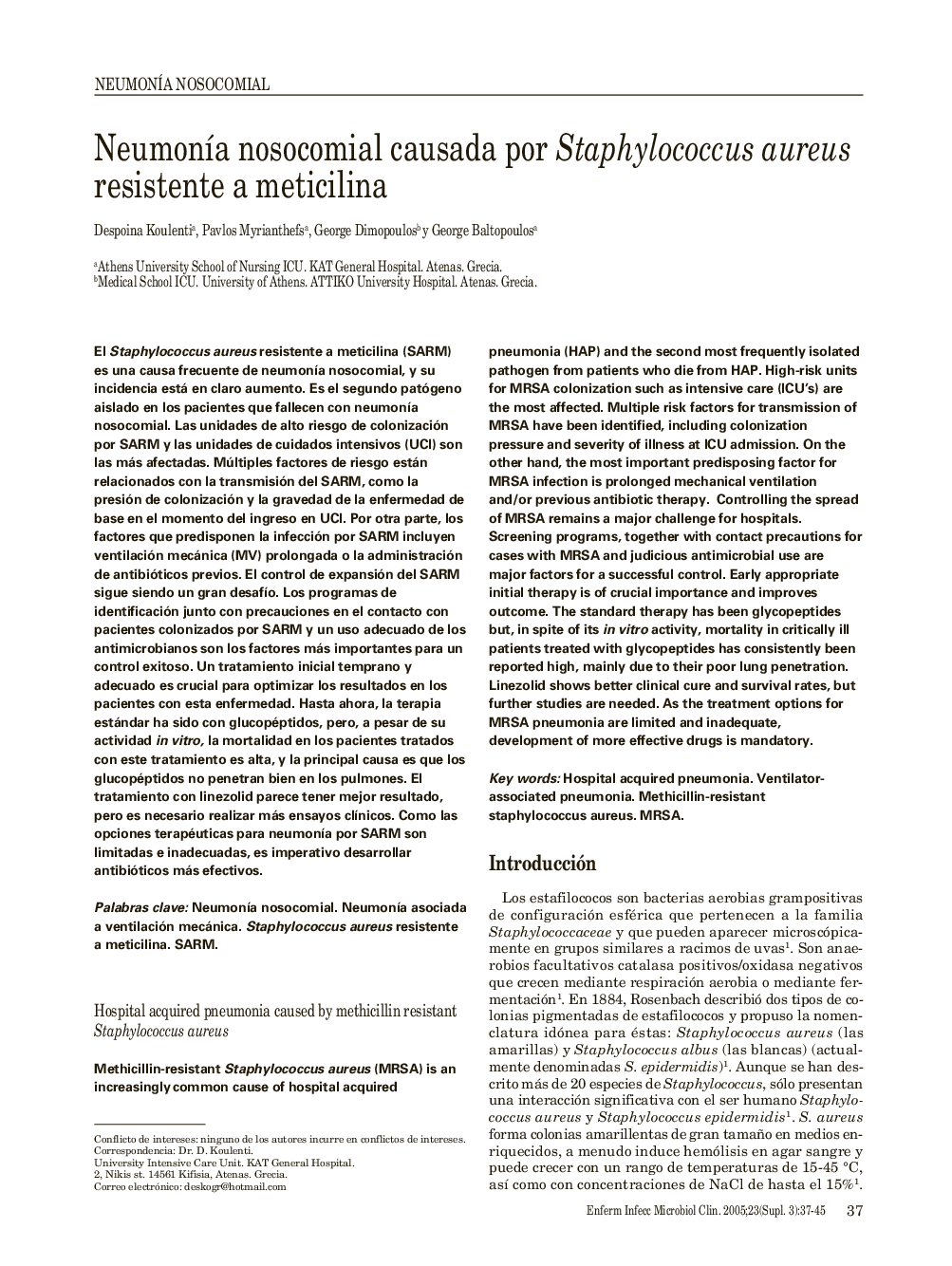| Article ID | Journal | Published Year | Pages | File Type |
|---|---|---|---|---|
| 9277176 | Enfermedades Infecciosas y Microbiología Clínica | 2005 | 9 Pages |
Abstract
Methicillin-resistant Staphylococcus aureus (MRSA) is an increasingly common cause of hospital acquired pneumonia (HAP) and the second most frequently isolated pathogen from patients who die from HAP. High-risk units for MRSA colonization such as intensive care (ICU's) are the most affected. Multiple risk factors for transmission of MRSA have been identified, including colonization pressure and severity of illness at ICU admission. On the other hand, the most important predisposing factor for MRSA infection is prolonged mechanical ventilation and/or previous antibiotic therapy. Controlling the spread of MRSA remains a major challenge for hospitals. Screening programs, together with contact precautions for cases with MRSA and judicious antimicrobial use are major factors for a successful control. Early appropriate initial therapy is of crucial importance and improves outcome. The standard therapy has been glycopeptides but, in spite of its in vitro activity, mortality in critically ill patients treated with glycopeptides has consistently been reported high, mainly due to their poor lung penetration. Linezolid shows better clinical cure and survival rates, but further studies are needed. As the treatment options for MRSA pneumonia are limited and inadequate, development of more effective drugs is mandatory.
Keywords
Related Topics
Life Sciences
Immunology and Microbiology
Microbiology
Authors
Despoina Koulenti, Pavlos Myrianthefs, George Dimopoulos, George Baltopoulos,
